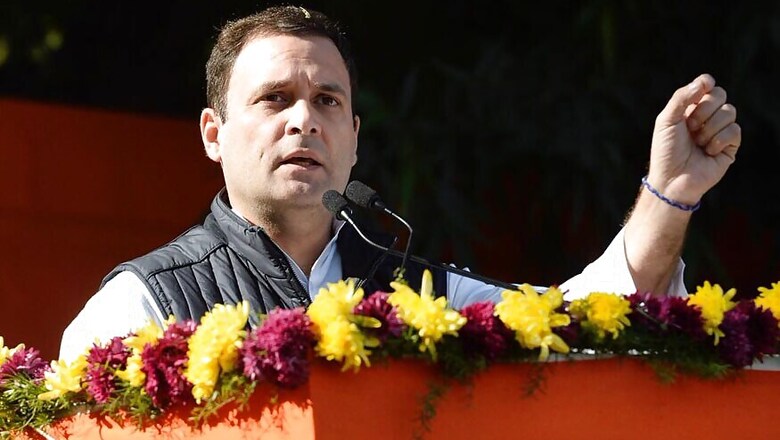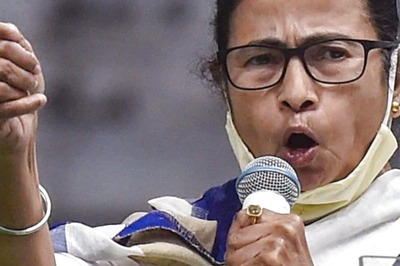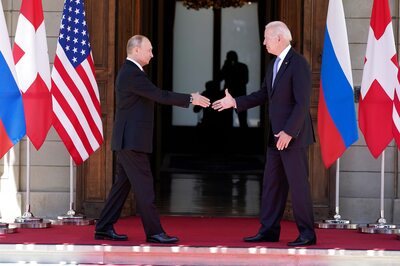
views
In the last decade of the last century Britain’s Labour party elected Tony Blair as its leader and he announced his intention to significantly alter the control and direction of Labour while retaining its socialist objectives.
Blair’s two symbolic changes were calling the Party New Labour and winning a general vote to abolish “Clause Four” of its constitution.
Why? Because Labour, founded as a Party in 1906, had dedicated itself since 1918, through this Clause, to acquire “for the workers-by-hand-or-brain the means of production....” it goes on for a long paragraph but essentially means the nationalisation of every industry or activity at the “heights of the economy”. Several sections of Britain’s population saw the retention of this perspective in modern times as being close to communism and, though the word doesn’t have the bogey-man effect it has in the USA, it seemed to invest the Party and the Trades Unions that financed it with too much power.
Tony didn’t mean it, but it did the trick of detoxifying the Labour image for several sections of the electorate and Labour swept to power in 1997.
Does the Congress Party, after its defeat in Gujarat and Himachal Pradesh need to learn any lessons from Blair’s renewal of Labour’s fortunes after being in opposition for 18 years?
It is impossible here to outline the vast differences between the UK’s democratic practices and allegiances and those of India. Britain may have a vague parallel of class ‘vote-banks’ to India’s religious and caste ones. There may even be a vague parallel between the xenophobia of sections of the UK against ‘immigrants’ and the religiously divisive nature of Hindutva; but the way the universal franchise of each country works is very different.
So in posing the question whether the Congress could do with a Blairite make-over, we may first ask “will changing the name of the Party renew its fortunes?” Congress increased its vote share in Gujarat through the disillusion of sections of the population with the BJP’s rule. The higher percentage of the vote wasn’t an endorsement of a new or clear direction initiated by the Congress. It could even be said that the avatar of a Hindu devotee visiting temples which Rahul Gandhi attempted was a bit ridiculous.
Indian political parties change their names not when they want to modernise, but when they suffer splits. So we get Congress (I) which didn’t stand for Congress Invigorated but for Congress (Indira). It should be evident that changing the name from Congress to Congress (R) will not alter the fortunes of the party if the R stands for Rahul rather than Renewal or Reconstruction.
Can Rahul Gandhi and his advisors find an equivalent to Clause 4 and abolish it? In all the elections in which the BJP have defeated the Congress, their leaders have mocked the old party for being a family affair. Narendra Modi, even before and during this Gujarat election, posed the question of rule by the Nehru-Gandhi dynasty.
A democracy shouldn’t turn into a hereditary monarchy, even though the US example with the Bushes and the Clintons and the example of the Bhuttos of Pakistan, the families in Bangladesh and indeed some African countries, seem to indicate that political parties even in democracies do embrace and promote the hereditary principle.
Has the BJP demonstrated that India doesn’t need and may be democratically hampered by its adoption? Is it time that the Congress realised that the closest thing they have to Clause 4 is the family Raj? Does the Congress’ internal democracy need to abolish what seems to be an inheritance principle? I pose this as a question rather than a proposal as each time there is a significant leadership vacancy there are no challengers to Indira-Sanjay-Rajiv-Sonia and now Rahul. One can’t imagine Rahul Gandhi, in emulating Tony Blair’s abolition of Clause 4 to abolishing himself.
Perhaps the closest thing to Clause 4 that has shaken up Indian democracy was the adoption rather than the abolition of a direction. It wasn’t an innovation by the Congress. It was the adoption by the BJP, under the influence of the RSS and other members of the coalescing groups, to adopt the idea of Hindutva as an electoral weapon.
Obviously Rahul’s advisors sent him on a temple tour in order to impress upon the electorate that the Congress was also in favour of Hindutva. It did nothing of the sort. These advisors and strategists should have realised that Hindutva as a political policy is not about religion; it’s about history and the divisions it breeds.
The BJP will plausibly claim that Hindutva is the natural consequence of the history of Partition. PM Modi, bringing his personal appeal to the Gujarati electorate, certainly played this card when he implied that former PM Manmohan Singh had “consulted” with Pakistani politicians. It was an allegation which attempted to parallel in reverse the accusations in the US against Donald Trump whose election is even now being investigated for collusion with the Russian regime.
The PM is facing calls to substantiate his statement about Manmohan Singh. He can, and probably will, ignore them on the principle that all’s fair in love and electoral campaigning.
There may be another parallel to the abolition of Clause 4, but a quick review of the Congress’ policies and profession throughout its existence would suggest that its championing of secularism is the only ‘Clause 4-ish’ determination it could discard. That would be the greatest divisive tragedy Indian democracy could face.
The other alternative facing the Congress is the abolition of the pseudo-democratic internal mechanisms that crown successors but I suppose we’ll have to wait for that till the next generation of the Nehru-Gandhi dynasty grows up or some saucy challenger with a Blairish flair has the upstart determination to challenge Rahul and persist in universal policies of fairness and material advance.
(The author is a well-known writer and political commentator. Views are personal.)




















Comments
0 comment